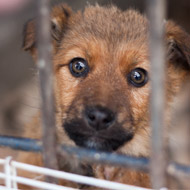Vets raise concern over online animal trade

The scale of online advertising for pets has risen significantly in recent years.
Some of Europe’s leading veterinary associations have written to the European Commission expressing concern over the unregulated internet trade of animals.
The letter’s signatories include the FVE (Federation of Veterinarians of Europe), FECAVA (Federation of European Companion Animal Veterinary Associations) and the international welfare organisation FOUR PAWS.
The letter states that the scale of online advertising for pets has risen significantly in recent years. ‘Some classified websites now have as many as 200,000 adverts featuring pets for sale at any one time,’ it claims.
It goes on to state that online trade is not regulated, and with this comes the cross-border spread of infectious diseases, animal cruelty and species extinction.
‘There are also the financial consequences of exploitation of tax loopholes, and the emotional and financial trauma suffered by European families who must deal with sick and dying animals , they have bought online,’ it continues.
In order to enable responsible selling and buying on the interrupt, the letter proposes a package of measures to regulate the online trade of animals on classified websites. The recommended measures include:
Seller verification - sellers must register with the site and verify their identify. Only one seller account per person per site must be allowed.
Mandatory information - the seller must provide the animals age, gender, vaccination records, microchip number and husbandry requirements.
No “wanted” adverts - there should be no opportunity for prospective buyers to post adverts as these proposed measures could be circumvented by dealers contacting the buyers directly.
Checking of animal adverts - the website must check all animal adverts before they go live to ensure they do not violate the site’s terms of use the law on animal sales.
To strengthen these measures for classified ad sites, the letter also calls on the EU Commission to apply the same general principals used to control the movements of food-producing species, to the movement of cats and dogs.
‘That means full traceability of location and identify of the anime, the breeder, the identifying vet, the keeper, the owner and any reseller from birth to death,’ it says.
To read the letter and to view the full list of recommended principles, visit fve.org/uploads/publications.



 The Veterinary Medicines Directorate (VMD) is inviting applications from veterinary students to attend a one-week extramural studies (EMS) placement in July 2026.
The Veterinary Medicines Directorate (VMD) is inviting applications from veterinary students to attend a one-week extramural studies (EMS) placement in July 2026.